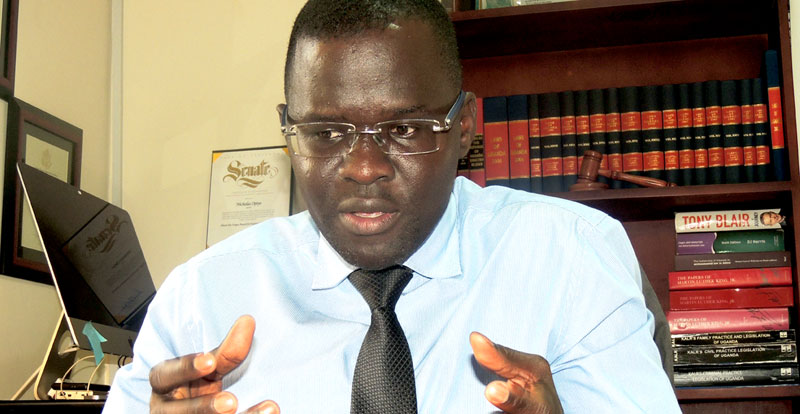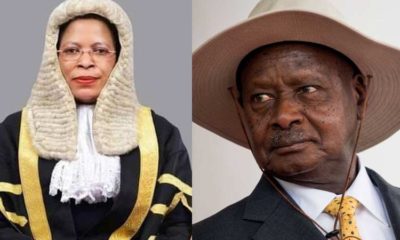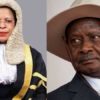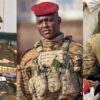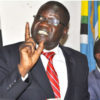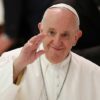Analysis
Museveni not sincere about ending torture, says renowned lawyer
In recent days, genuinely or otherwise that they were involved in the assassination of former Assistant IGP Andrew Felix Kaweesi.
President Museveni has since sent mixed messages about the torture, at one time supporting Police’s actions and later directing that torture is unacceptable. The Sunrise’s Henry Lutaaya spoke with decorated Human Rights Lawyer Nicholas Opio of Chapter Four Uganda to comment about the situation of Human Rights in the country. Below are excerpts
Qn. 1. What is your assessment of the situation of human rights in Uganda at the moment? the country
Ans. The longer President Museveni has stayed in power, the more we’ve seen widespread discontent especially among the youth about the state of our governance, about whether Uganda is ready for a peaceful transfer of power from one individual to another.
That widespread discontent is also coupled with economic problems such as unemployment, poor quality of public service. But the response by those in power, has not been to confront those problems head on but rather to use high handedness whether in the form they treat dissident voices, or how they treat political opposition, independent media houses or in this case people who are suspected to be involved in criminality.
That response has in so many ways rolled back the achievements we’ve had since 1995, of a constitutional order that respects the rule of law. So, the status of human rights, and you can see from so many reports such as the World Rule of Law Index report 2016, the Report of Uganda Human Rights Commission, and other organisations, you can see a deterioration of human rights situation.
But also, you can see a hollowing of institutions. Institutions have been demobilised so much so that they’ve been reduced to optical value as opposed to being very strong and able to hold their fort. So the deterioration of the institutions has given room and space for excesses.
So whether its the judiciary, or the police, these institutions have become institutions that work towards the propagation of power as opposed to the promotion of the rule of law. There is just a general breakdown of institutions and systems in favour of the big man, all of which is geared towards regime survival as opposed to democratic governance in this country.
Qn.2 Do you believe in the President’s recent directive to security agencies to stop torture?
The president’s response only serves a PR (Public Relations) purpose. I don’t think it serves a reform purpose. First of all, the President does not acknowledge that torture exists. He says that it is being alleged in the press.
As a person who receives daily intelligence briefings, he must be in position to speak with certainty and acknowledge that a section of his security forces have committed acts of torture. Any statement that falls short of full acknowledgement or at least a commitment to investigation and accountability is merely a PR stunt and serves an optical value.
Qn. 3. So if it is cosmetic, what, as a human rights defender do you expect of the President?
The president must admit first and foremost that the practice of torture is prevalent within his security forces. He must commit to a thorough and independent and transparent investigations with the view of bringing to account perpetrators of these heinous acts. The president must hold the leadership of these agencies to account.
If the police is being accused of torture and all you do is to reward Kayihura (Inspector General of Police) with new contracts, the interpretation we make is that it is a tacit acceptance or endorsement of the actions under Gen. Kale Kayihura. So the president must commit to these three things. 1.That torture still exists, 2. Commit to a transparent and independent investigation with the view to bringing to account all the people involved in these heinous acts and 3, He must show actions that will hold political leaders of these institutions to account.
Qn. 4. The Police has a department that is supposed to discipline errant officers, don’t you believe in it?
The Police Standards Unit is an administrative unit. It’s not a criminal unit. The actions that the police officers are being accused of are criminal. They must be prosecuted in a court of law, as a crime. They are not disciplinary issues like being drunk on duty.
The Police Standards Unit is unable, in fact should have no jurisdiction over criminality. But secondly, the Police Standards Unit, has over time been ineffective in holding police officers to account for their own excesses. I think it is about time we had an independent police commission like we’ve seen in other countries. An external body of experts that can hold police to account.
Qn. 5. Despite the gravity of the torture as seen in the pictures, we’ve not seen anybody storming the street to show disapproval of these ‘Crimes Against Humanity,’ as Speaker Rebecca Kadaga has described them? Why?
There have been expressions of outrage in various ways. You don’t have to be in the street all the time. The civil society organisations held a press conference a couple of days ago and made a couple of demands, among others being granted unrestricted access to these places of detention, and one on one interviews with these people who have been detained there to determine whether the practice of torture exists. We’ve also offered to take a group of doctors to examine the suspects to see if indeed the acts of torture have occurred. But also there are processes underway to go to court.
And when we have enough evidence, we will go to court. No body should live with the impression that we are sitting by and looking on. There are actions being done, and those actions will come to fruition sometime in the future, among others holding to account individual police officers who are involved. There are a couple of names we think require further scrutiny and once we’re sure, you will see us in court.
Qn. 6. Has the international community abandoned Ugandans in the fight for human rights. We have not seen them come out to comment?
First and foremost, the primary obligation of running this country lies with no one else but with Ugandans. So we must first and foremost re-assert our primary duty to push back against these excesses.
But also development partners who work with the Ugandan government, must state very clearly which side of this debate they stand. Are they people who only interested in economic adventures in Uganda or military cooperation in the fight against terror, or for the refugees in West Nile, or they actually hold dear the value of human dignity and equal treatment under the law.
If they do, they must speak out, but also take actions. It would be interesting to hear from the people who are funding the JLOS sector especially police, and if they think their tax payers’ money should be used for acts of torture.
Comments



